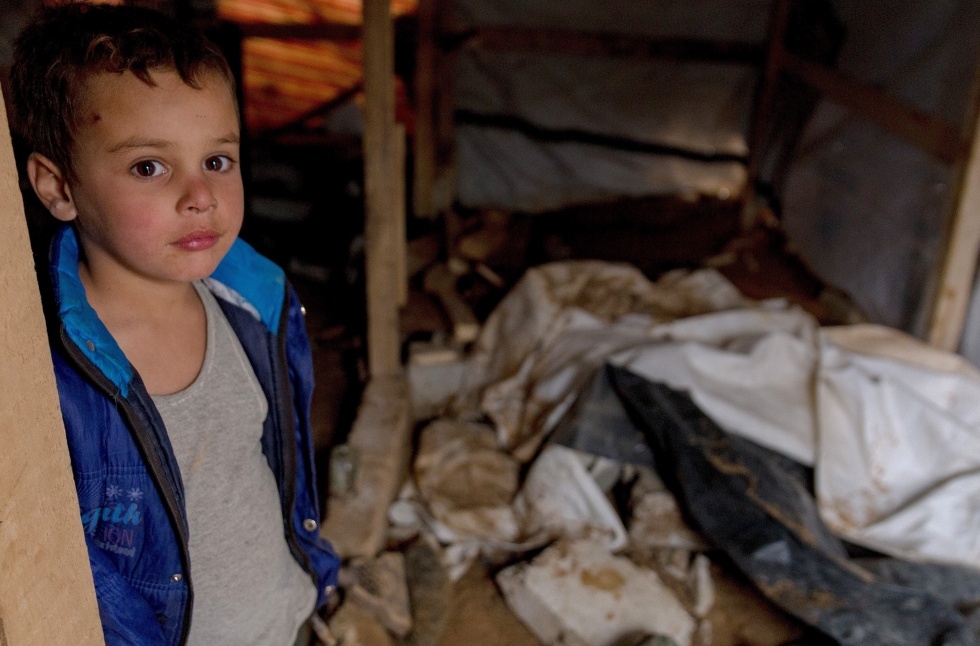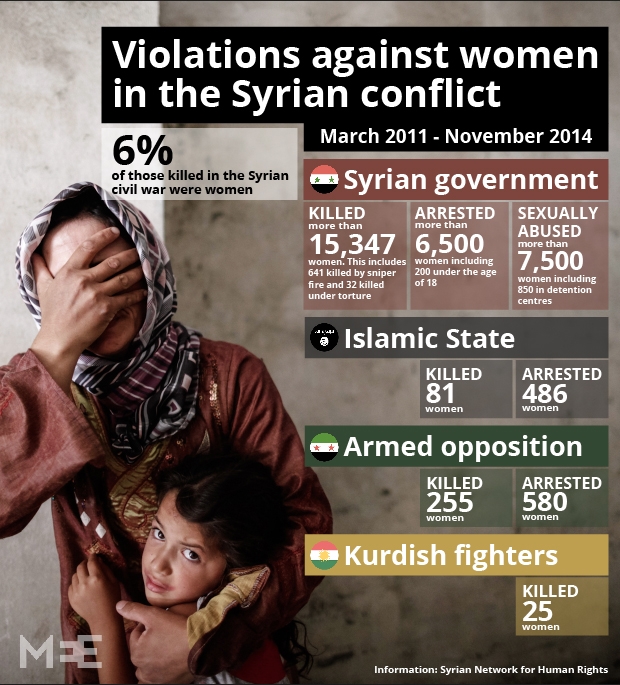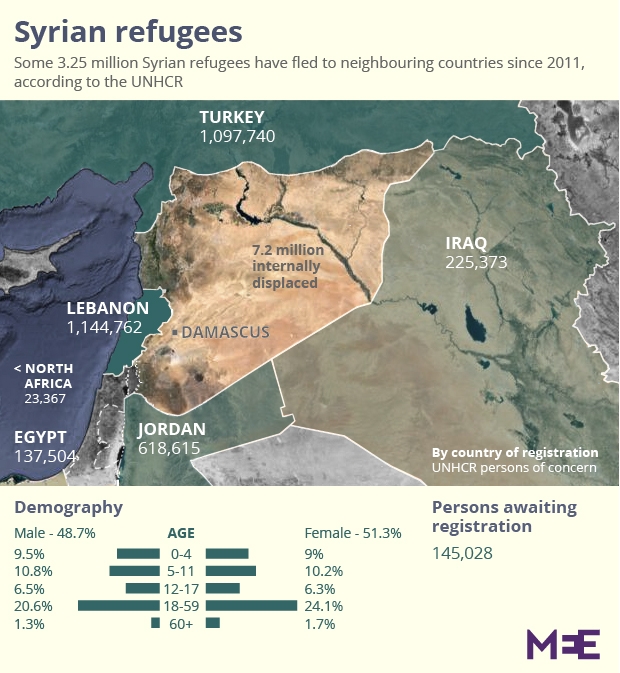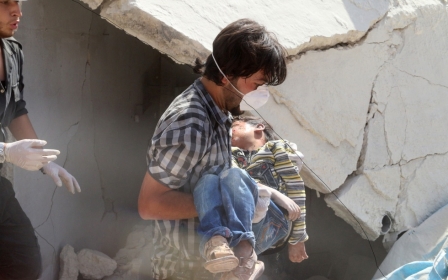Syria's crisis in figures

The Syrian conflict has killed more than 200,000 people, displaced millions and left the country in ruins with no end in sight to the violence.
Key figures follow on the conflict that erupted almost four years ago with peaceful protests for reform but escalated into all-out civil war after the government launched a brutal crackdown on dissent.
It gained in complexity with the arrival of extremist militants, who seized swathes of the country, later entering into confrontation with ex-rebel allies, who are fighting forces loyal to president Bashar al-Assad.
Casualties
The Syrian Observatory for Human Rights said Tuesday the conflict has killed 202,354 people since March 2011 -- more than 130,000 of them combatants and 63,074 civilians, including 10,377 children.
Among the anti-Assad fighters, 37,324 were Syrians, while 22,624 were non-Syrian militants.
On Assad's side, there were 44,237 soldiers, 28,974 paramilitary fighters, 624 members of Lebanon's Hezbollah, and 2,388 Shiite fighters from beyond Syria and Lebanon.
Another 3,011 were unidentified, according to the Observatory, which relies on a network of sources across Syria for its information.
Observatory director Rami Abdel Rahman said the toll "is probably much higher than 200,000, but certain areas under regime and Islamic State (IS) group control are impossible to work in freely".
He also said some 200,000 people are being held in Syria's infamous government jails, including 20,000 who have gone missing entirely.
Thousands of other people -- combatants and civilians -- have also been taken hostage by IS and other factions active in Syria.
Refugees and displaced
The number of Syrian refugees in neighbouring countries has passed three million, according to the UN refugee agency, the UNHCR. Some 6.5 million have also been internally displaced.
In September, the UN estimated that 60 percent of the some 23 million Syrians were mired in poverty, double the figure of 2010.
Officially, Turkey hosts 1.6 million Syrian refugees, of which the majority live in makeshift camps.
According to the UNHCR 1.1 million have taken refuge in Lebanon, a quarter of the host country's population, 618,000 in Jordan, 225,000 in Iraq and 137,000 in Egypt.
On Monday the World Food Programme suspended food aid to more than 1.7 million Syrian refugees in neighbouring countries, blaming a financing crisis caused by unhonoured cash pledges.
Economic consequences
According to experts, the conflict has set Syria's economy back by three decades, with half of the population unemployed and most of the infrastructure destroyed.
The International Monetary Fund says its gross domestic product has contracted by more than 40 percent.
Exports have fallen by 90 percent. The production of wheat has dropped by 40 percent and that of cattle by a quarter in 2013, while the production of poultry has dropped by more than half compared with the pre-war period.
Sixty one of the 91 public hospitals have been damaged and nearly half are out of use, while 53 private hospitals have also been affected.
The war damage bill comes to some $31 billion, according to official statistics. Oil production has dropped by 96 percent.
Middle East Eye propose une couverture et une analyse indépendantes et incomparables du Moyen-Orient, de l’Afrique du Nord et d’autres régions du monde. Pour en savoir plus sur la reprise de ce contenu et les frais qui s’appliquent, veuillez remplir ce formulaire [en anglais]. Pour en savoir plus sur MEE, cliquez ici [en anglais].






